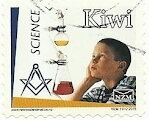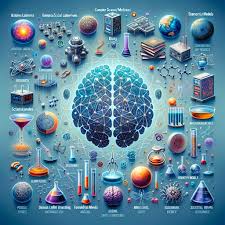Stamp: Freemasons - Science - Small Format (Personalized and Private Mail Stamps 2012)
Freemasons - Science - Small Format (Personalized and Private Mail Stamps 2012)
01 November (Personalized and Private Mail Stamps ) within release New Zealand : New Zealand Mail (NZM) goes into circulation Stamp Freemasons - Science - Small Format face value Kiwi No Face Value
| Stamp Freemasons - Science - Small Format in catalogues | |
|---|---|
| Colnect codes: | Col: NZ-NZM 2012-2076 |
Stamp is square format.
Freemasons Series Imprint: NZM 11/12 2076Also in the issue New Zealand : New Zealand Mail (NZM):
- Stamp - Resene - Breeze face value Kiwi;
- Stamp - Resene - Bullseye face value Kiwi;
- Stamp - Resene - Elvis face value Kiwi;
- Stamp - Resene - Smashing face value Kiwi;
- Stamp - Resene - Wild Thing face value Kiwi;
- Stamp - Resene - Windfall face value Kiwi;
- Stamp - Queenstown - Small Format face value 2.10;
- Stamp - Resene - Dynamite face value Kiwi;
- Stamp - Resene - Material Girl face value Kiwi;
- Stamp - Resene - Night Owl face value Kiwi;
- Stamp - Resene - Red Tape face value Kiwi;
- Booklet - Resene - The Range Fashion Colours Booklet face value Kiwi;
- Stamp - Freemasons - Community Support - Small Format face value Kiwi;
- Stamp - Freemasons - Education - Small Format face value Kiwi;
- Stamp - Freemasons - Families - Small Format face value Kiwi;
- Stamp - Freemasons - Medical Research- Small Format face value Kiwi;
- Stamp - Freemasons - Science - Small Format face value Kiwi;
- Stamp - Freemasons - The Arts - Small Format face value Kiwi;
- Stamp - Freemasons Charity - A Tradition of Caring - Small Format face value Kiwi;
- Stamp - Freemasons New Zealand Logo - Small Format face value Kiwi;
- Booklet - Freemasons Series Booklet - Small Format face value 10*Kiwi;
Stamp Freemasons - Science - Small Format it reflects the thematic directions:
help, especially in the form of money, given freely to people who are in need, for example because they are ill, poor, or have no home, and organizations that provide this help: She does a lot of work for charity.
Biologically, a child (plural: children) is a human being between the stages of birth and puberty. The legal definition of child generally refers to a minor, otherwise known as a person younger than the age of majority. Child may also describe a relationship with a parent (such as sons and daughters of any age) or, metaphorically, an authority figure, or signify group membership in a clan, tribe, or religion; it can also signify being strongly affected by a specific time, place, or circumstance, as in "a child of nature" or "a child of the Sixties". There are many social issues that affect children, such as childhood education, bullying, child poverty, dysfunctional families, child labor, hunger, and child homelessness. Children can be raised by parents, by fosterers, guardians or partially raised in a day care center.
Logos is a term used in Western philosophy, psychology and rhetoric, as well as religion (notably Christianity); among its connotations is that of a rational form of discourse that relies on inductive and deductive reasoning.
An organization or organisation (Commonwealth English; see spelling differences), is an entity—such as a company, or corporation or an institution (formal organization), or an association—comprising one or more people and having a particular purpose.
Science is a systematic discipline that builds and organises knowledge in the form of testable hypotheses and predictions about the universe.Modern science is typically divided into two or three major branches: the natural sciences (e.g., physics, chemistry, and biology), which study the physical world; and the behavioural sciences (e.g., economics, psychology, and sociology), which study individuals and societies.The formal sciences (e.g., logic, mathematics, and theoretical computer science), which study formal systems governed by axioms and rules, are sometimes described as being sciences as well; however, they are often regarded as a separate field because they rely on deductive reasoning instead of the scientific method or empirical evidence as their main methodology. Applied sciences are disciplines that use scientific knowledge for practical purposes, such as engineering and medicine





